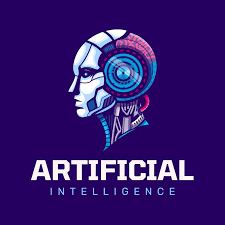
"Share this Info and Help a Friend"

NEW: AI Mobile and Desk Phone Service!
"AI Summary & Call Recording Transcribed on your Mobile/Desk Phone and PC"
- Perfect: You're Not Near their Desk Phone when the Phone Rings.
- Perfect: You Don't want to Call or Text from your Personal Cellphone Number.
- Perfect: You Don't want Calls on your Cellphone After Hours and Go to Voicemail.
- Perfect: Emergency when you leave your Business and Can't Answer your Desk Phone.
Have your All Phone Numbers Make Calls/SMS/MMS on your Mobile/Desk Phone/PC.
https://www.teqiq.com/phone
In research, they had monitored social media and found a server with approximately 5,000 children actively and openly discussing suicide.
These conversations were unfolding in a digital space with virtually no adult supervision — a dark corner of the internet where despair was festering among the generation expected to build our future. That reality is more than a tragic footnote in the story of technology; it is a blaring siren signaling a catastrophic failure of both parenting and education.
As we stand on the precipice of an AI revolution that will reshape society, we are failing to equip our children with the emotional resilience to navigate the world today, let alone the skills and purpose to thrive in the world of tomorrow.
Let’s talk about the urgent need to build emotional and digital resilience in our children.
Parenting in the Age of Anonymity
This anecdote is a symptom of a much larger disease. While parents of previous generations worried about what their kids were doing at the park, today’s parents must contend with a borderless, anonymous digital world that operates 24/7.
Platforms are designed for community, but without vigilant oversight, they can become echo chambers for the most dangerous aspects of adolescent angst. The platform’s safety features often require a teen’s cooperation to be effective, leaving a massive gap where parental guidance should be.
This lack of oversight is happening against the backdrop of a well-documented youth mental health crisis, exacerbated by the pressures of social media.
We are allowing our children to be raised by algorithms and anonymous peers in environments we don’t understand and can’t control. Before we can even begin to prepare them for a future shaped by AI, we must first pull them back from the digital abyss by re-engaging in their online lives, establishing firm boundaries, and fostering open communication about the dangers they face online.
Education System’s Broken Compass
While parents are struggling on the home front, our education system is failing on a systemic level. We are still operating on an industrial-era model of schooling, designed to produce compliant workers for jobs that are rapidly disappearing. The curriculum is focused on rote memorization and standardized testing—skills that AI can already perform better than any human.
A Reuters/Ipsos poll revealed that 71% of Americans are concerned that AI will lead to too many people losing jobs, yet our schools continue to guide students down career paths that may not exist by the time they graduate.
Career counseling, if it exists at all, is often an underfunded afterthought, incapable of providing relevant guidance for an AI-driven job market. We are teaching students what to think, but not how to think. We are preparing them for a world of predictable, linear careers, while the reality they will face is one of constant change and disruption.
The result is a generation armed with obsolete knowledge and a broken compass pointed toward a future that no longer exists.
The Anti-Work Generation: A Crisis of Purpose
This trend leads to a deeply concerning cultural shift. Many young people today see work not as a source of fulfillment but as something to endure or avoid altogether. Viewing work as something to endure isn’t laziness; it’s a rational response to the world they see. They are graduating with crushing debt into a gig economy, looking at a future where their skills could be automated away, and seeing a corporate world that often seems to offer little more than burnout.
Surveys of Gen Zs and millennials consistently show a deep desire for purpose-driven work and a healthy work-life balance — things the current system seems ill-equipped to provide. When education fails to connect learning to passion and purpose, and when the future of work appears precarious and unfulfilling, it is no wonder that a sentiment of disillusionment takes hold.
If we do not fix this crisis of purpose, we risk raising a generation that is not only unemployable due to a skills mismatch but also unwilling to work because they have never been shown that a career can be a source of joy and meaning.
New Curriculum for the AI Era
The challenge is immense, but the path forward is clear. We need a radical overhaul of our education system, one that shifts the focus from what AI can do to what it can’t. The curriculum of the future must be built on a foundation of uniquely human skills.
First, we must prioritize critical thinking and complex problem-solving. Instead of asking students to memorize the answer, we need to teach them how to ask the right questions and evaluate information from multiple sources. AI itself can be a powerful tool in this process.
Educators can leverage AI as a Socratic partner for students, a tireless tutor that can challenge their assumptions, ask probing questions, and force them to defend their reasoning. Rather than using AI to get an answer, students can learn to use it to refine their thinking.
Second, we must foster creativity and emotional intelligence. These skills build empathy, collaboration, and innovation that will allow humans to work alongside AI to create new value. As one report notes, schools must integrate these “soft skills” into the core curriculum.
Third, we can use technology to bridge the gap between the classroom and the real world through AI-powered simulations. The world awaiting our children is complex and dynamic. Immersive simulations can provide a safe and controlled environment for them to practice making difficult decisions with real-time feedback.
Imagine students navigating a complex business negotiation, managing a response to a simulated climate crisis, or collaborating to solve an ethical dilemma in a virtual workplace. These experiences build not just knowledge, but practical wisdom and resilience, preparing them for the pressures and ambiguities of their future careers in a way that lectures and textbooks never could.
Finally, we need to teach adaptability and lifelong learning. The idea of learning a single trade for life is dead. Education must instill a “growth mindset,” teaching students how to learn, unlearn, and relearn continuously. Achieving that goal requires embracing new, personalized learning technologies and creating a system that supports individuals throughout their entire careers, not just for the first 18 years.
Wrapping Up
The image of thousands of children lost in a digital world of despair is a stark reflection of our collective failure. We are standing by as a generation grows up unsupervised online and unprepared for the profound economic and social shifts that AI will bring.
That crisis is not a problem that technology can solve; it is a human problem that requires a human solution. It demands that parents reassert their role as guides in both the real and digital worlds. It requires that our education system shed its industrial-age skin and transform to cultivate the skills that will matter most in the coming century.
If we fail to act, we risk a future defined not by the incredible promise of AI, but by the lost potential of a generation we left behind.
If this tip helps and you would like to donate click on the button. Thanks In Advance.
________________________________________________________________________________________________________
"Fortune Favors, Who Value Time over Money!"
"TeQ I.Q. was the 1st IT Company to Deliver Cloud Solutions since 2003"
Tech issues taking up your Time?
"TeQ I.Q. Makes Your Technology Secure and Protected"
Do you have Tech Frustrations like your Computer, Internet, Phone, Cellphone, Camera, TV, Car?
"We Take Away Your Tech Frustrations and Give You the Free Time You Deserve!"
Call Robert to ask all your Technology questions.
For Free Consultation Call Now Robert Black at (619) 255-4180 or visit our website https://www.teqiq.com/
Chase Bank and Others Trust TeQ I.Q. with their IT and TeQnology so can you!



